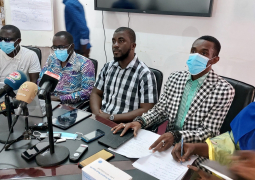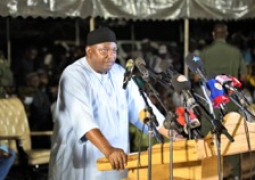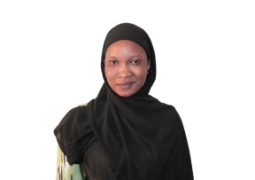
It is the first time the village has had a borehole as a source of drinking water since the establishment of the village decades ago.
The villagers claim that they are no longer drinking “contaminated water from an open well” , which used to pose high risk to their health.
“We were drinking from an open well at the village which was not even covered. It was not safe for drinking, but there was no other option but to drink from the well for survival,” Pateh Ceesay said. “This is the first time we are having a borehole. We were drinking contaminated water all these years. Safe and readily available water is important for public health, whether it is used for drinking, domestic use, food production or recreational purposes.”
Ceesay was speaking recently during a visit by Child Fund officials who were on a nationwide tour visiting projects across the length and breadth of the country.
The borehole project, officials said, amounted to over two hundred thousand dalasis.
However, despite one of their top challenges being addressed, the villagers are still in need of a women's garden and an ECD school for their kids.
The community of Kerr Gibel village spent hours drawing water from an old well in the village using a 20litre gallon or sometimes donkey-carts in order to get water. This well serves as the only source of water for the community that reportedly has over 200 inhabitants.
Aside from using the well for drinking and cooking, villagers also use it as a source of drink for their animals.
“Without access to clean and safe drinking water, it means the risk of parasites and waterborne illnesses will threaten the lives of children, women and young girls of the village,” Ceesay stated, adding: “But I want to sincerely thank ChildFund for their timely intervention. In fact, I can tell you that most of the times, our school-going children go to school late because to have access to the only well at the village was difficult.”
While appreciating the support rendered by the ChildFund, the VDC Chairman also appealed to ChildFund to help them with an ECD school. “I can tell you that children under five years at the village are not going to school like the way other kids are doing. There is a distance between our village and the next school which is about 2.5km. Before our kids go to school, they have to be seven years or more,” he stated.
Women leader Yama Ceesay spoke also on the significance of clean and potable drinking water, saying: “We find it difficult to drink in the open well, especially during the rainy season as the water from the open well used to have some particles. Therefore, we want the ChildFund and other donors to come to our aid and help us with the garden and milling machine.”
Visit to Janneh Kunda women garden in Kiang
From visiting project sites in the central and the upper parts of the country, ChildFund officials also visited Janneh Kunda village women garden in Kiang West District of LRR.
The women's garden was also entirely fenced by the international NGO preventing animals from entering in it.
“Before the fencing, cows and other ruminants were entering the garden left and right, which was affecting our production,” Aja Jalika Janneh said. “We also want them to support us with a borehole with a view to increasing our cultivation. The wells we have in the garden are always dry, hence we find it difficult to get water. The produce that we get from the garden is what we sell to feed our families and also pay the school fees of our school-going children.”
One Tida Janneh said: “Water shortage is one of the challenges we are currently encountering at the garden. When the wells in the garden are dry, our vegetables sometimes die.” She added that the market for selling their produce is also a challenge.
The ChildFund team also visited Madina village in the Foni Kansala District of the WCR, which also benefited from a water borehole.
Amie Sowe and Fatou Colley of the village thanked ChildFund for the support, something they said has greatly helped the women.
Read Other Articles In Headlines





